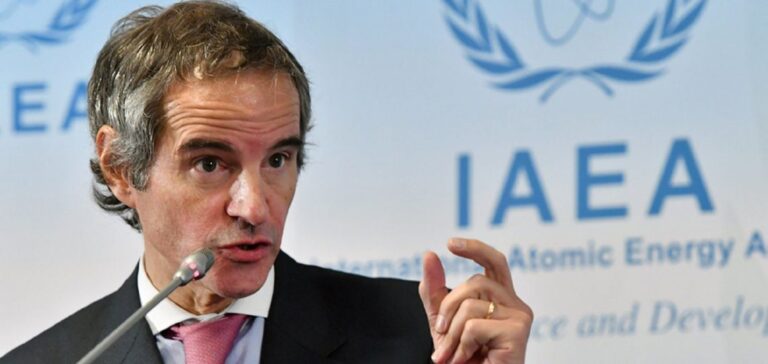Rafael Grossi, head of theIAEA (International Atomic Energy Agency), arrived in Iran for a series of strategic discussions. This visit, the first since March 2023, comes in a climate of growing mistrust. Grossi plans to meet Iran’s top nuclear officials and Foreign Minister Hossein Amir-Abdollahian. The aim is to clarify Iran’s commitments with regard to its nuclear activities and negotiate the reintroduction of international inspections, sharply curtailed since 2021.
Tension and international implications
Tensions surrounding Iran’s nuclear program have intensified, as Iran has gradually exceeded several uranium enrichment thresholds set by the 2015 international agreement (JCPOA). Iran is currently enriching uranium to 60%, a level that is alarming the international community as it approaches the 90% threshold needed to produce nuclear weapons. This delicate situation is exacerbated by the failure of negotiations to reactivate the JCPOA and by recent military tensions in the region, including attacks attributed to Israel.
The conference in Isfahan: a central pivot
The holding of the conference in Esfahan is particularly symbolic, as the city is a key nuclear site, home to the Natanz uranium enrichment plant. The discussions scheduled during this conference are crucial for the international community, which hopes to see a reduction in Iran’s potentially military nuclear activities. Grossi and his team will be seeking concrete commitments from Iran on the transparency of its nuclear activities and the readmission of IAEA inspectors.
International and regional reactions
Grossi’s visit took place against a backdrop of varied international reactions. European countries, while supporting the dialogue, remain cautious about Iran’s real intentions. The United States, having left the JCPOA under the Trump administration, is observing developments with some distance but with obvious strategic interest. Moreover, recent statements by the IAEA, expressing concern about the security of nuclear sites following attacks and heightened tensions in the region, add further urgency to these discussions.
Future challenges and prospects for cooperation
Grossi’s visit could determine the future course of cooperation between Iran and the IAEA. If the discussions result in meaningful agreements, this could ease some of the regional tensions and pave the way for greater mutual understanding. However, the failure of these talks could lead to an escalation of tensions and potentially new sanctions or conflicts. The international community, while hoping for positive results, remains prepared for all eventualities.
Rafael Grossi’s mission to Iran represents a crucial moment for international diplomacy and global nuclear security. The results of this visit could have a significant influence on international relations and regional stability in the years to come.






















